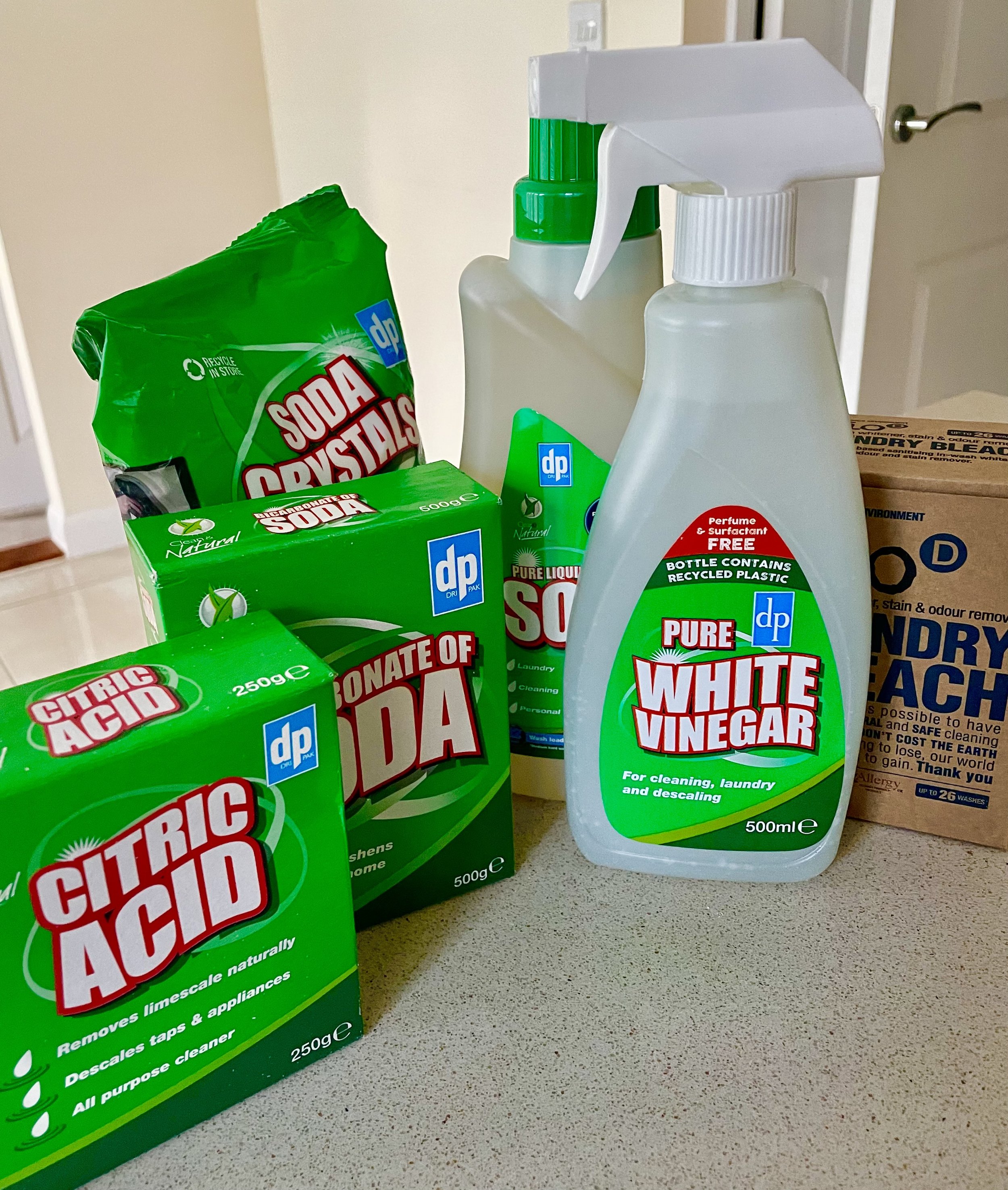Eco-friendly cleaning
Eco-friendly cleaning; good for the planet & good for you.
We all want to have a clean home that smells nice, but what is the cost of using traditional cleaning products to ourselves, our native wildlife, and more importantly, the cost to our children’s future?
Are cleaning products really bad for you?
As humans living in the 21st century, we spend about 90% of our lives indoors. We clean our homes with harsh toxic chemicals which may contribute to respiratory illnesses1, reduced immune function2, and skin conditions3. These chemical-based products that we use to clean our homes, wash our clothes in and make our living spaces smell ‘fresh’ also negatively impact on our wildlife and aquatic life. The chemical ‘run-off’ leaches from washing machines and sinks into our natural lakes and rivers contributing to the poisoning of fish, birds and other wildlife.
What are examples of green cleaning products?
When it comes to using eco-friendly household products, using natural products which are free from chemicals can still be as effective as conventional cleaning products. Some examples of green products are:
White wine vinegar – great for washing windows, mirrors, or as a general household cleaner.
Bicarbonate of soda – use it on its own to clean silver, or mix it with salt as a mild abrasive for stubborn areas e.g on limescale in your shower or sink.
Washing soda – literally ‘lifts’ dirt and stains from clothes, can be used to clean mould or as an overnight soak for baking trays.
Citric acid – this is great on limescale, use on taps, sinks, down loo’s, and inside ovens.
Pure liquid soap – use this as eco-friendly laundry detergent to wash your clothes, mix with essential oils for fragrance, mild enough to use as a shower gel too.
Eco bleach – use this to get your whites clean, it’s a brilliant laundry brightener.
Castile soap – perfect for mild washing, can be used on the face and hands as it will retain moisture in these delicate areas.
Eco eggs – use these to wash your clothes with zero chemicals.
What are the most environmentally friendly cleaning products?
All of the above products are completely environmentally friendly, and what’s more, they’re kind to skin, will not contribute to the development of respiratory illnesses or harm our own or our little one’s gut or immune health. Using products that contain zero chemicals means we can rest easy in the knowledge that when we put our washing machines on, we’re not contributing to the pollution of our rivers and lakes. If you look at the back of your cleaning products including bleach, disinfectants, laundry detergents etc, you will see warnings stating that the product is “harmful to aquatic life with long-lasting effects’’, so essentially, if your cleaning product does not contain these warnings, your product should be eco-friendly. Even more worryingly, some products I have seen recently state on the back “causes serious eye irritation’’ and “causes allergic reaction’’!
How else can I be eco-friendly when cleaning?
There are other ways you can be eco-friendly when cleaning, for example, instead of using single use paper towels when cleaning kitchen surfaces you can use re-useable ones, available from Any Green Will Do. These towels can be washed in your usual laundry up to 12 times, and the founder Jeannette, advises you to keep them in an old-style serviette holder once they have been removed from the roll. Other household items can be purchased from her website including biodegradable bin liners, eco-friendly toilet paper, and plastic-free dish brushes.
If you would like my help getting to the root of any wellbeing worries, book in for your free 15-minute discovery call to see how I can help.
References
Øistein Svanes, Randi J. Bertelsen, Stein H. L. Lygre, Anne E. Carsin, Josep M. Antó, Bertil Forsberg, José M. García-García, José A. Gullón, Joachim Heinrich, Mathias Holm (2018). Cleaning at Home and at Work in Relation to Lung Function Decline and Airway Obstruction. American Journal of Respiratory and Critical Care Medicine . 197 (9), 1-10
ALYSON L. YEE AND JACK A. GILBERT. (2016). Is triclosan harming your microbiome?. Science. 353 (6297), 348-349.
V. Goffin, C. Piérard-Franchimont,G. E. Piérard. (1996). Sensitive skin and stratunm corneum reactivity to household cleaning products. Contact dermatitis. 197 (1), 1-10.

